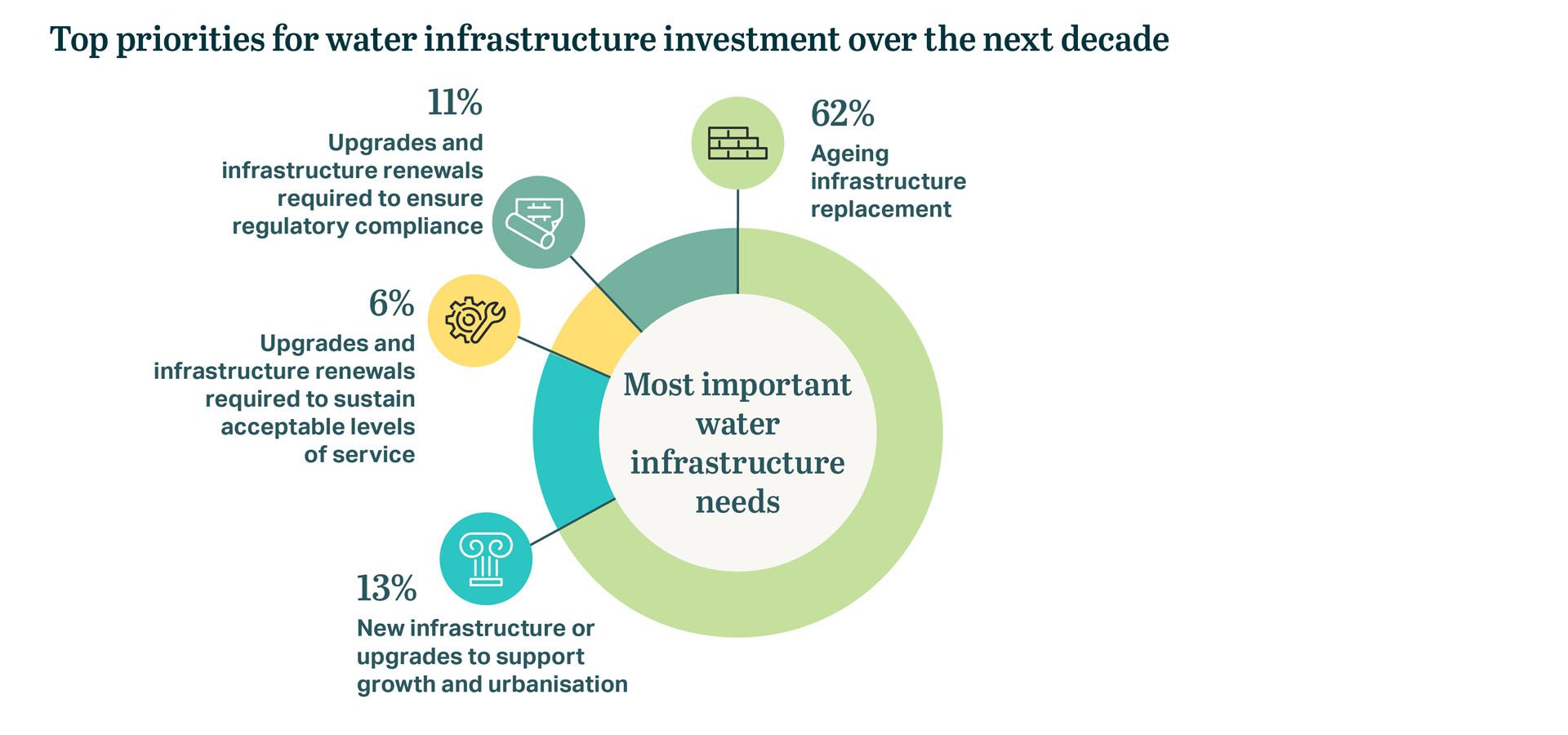The water sector in New Zealand is experiencing a significant shift with the introduction of Local Water Done Well (LWDW), a policy aimed at improving the management of water services. The previous approach, which focused on centralising water services under the Three Waters Reform, has been re-evaluated in favour of a more localised model.
Decentralising control enables greater control at the local level while also ensuring financial sustainability and long-term infrastructure planning. The focus is on strengthening local governance and fostering collaboration across communities to deliver sustainable, future-proofed water infrastructure that meets the needs of all New Zealanders.
Water investment over the next decade
Replacing ageing infrastructure emerged as the highest priority for respondents when identifying key investment needs for New Zealand's three waters infrastructure over the next decade. Respondents emphasised the critical need for ongoing maintenance and repair work to bolster infrastructure resilience. This focus on ageing systems is linked to New Zealand's broader infrastructure challenges, as many water systems, such as pipes, wastewater treatment plants, and stormwater infrastructure, were built decades ago and are now reaching or exceeding their expected lifespans. Consequently, maintenance costs are rising, operational inefficiencies are increasing, and service disruptions are becoming more frequent. These issues are further exacerbated by more stringent regulatory standards for drinking water and environmental protection, which older systems often struggle to meet. Upgrading these systems is essential to ensure they can meet current and future demands.
Achieving long-term stability in water services was also highlighted as a key priority, with financial constraints identified as the main challenge. Although climate change and regulatory changes are seen as risks, they were considered less urgent than securing adequate funding and financial mechanisms for water infrastructure, emphasising the need for robust financial planning to ensure long-term infrastructure resilience.

Opportunities to enhance sustainable water service delivery
Respondents highlighted several key opportunities to improve sustainable water service delivery through Council-Controlled Organisations (CCOs) or joint arrangements. A recurring theme was the potential for scaling services and achieving operational efficiencies, which could help streamline operations and reduce costs. Establishing a consistent pipeline of work was also emphasised as essential for ensuring a continuous flow of projects and investments. Additionally, many respondents pointed out the value of distancing water service management from political influence, enabling more consistent and transparent decision-making. Overall, there was strong support for the CCO and joint arrangement models, as they foster collaboration, improve service delivery, and promote long-term sustainability and resilience.